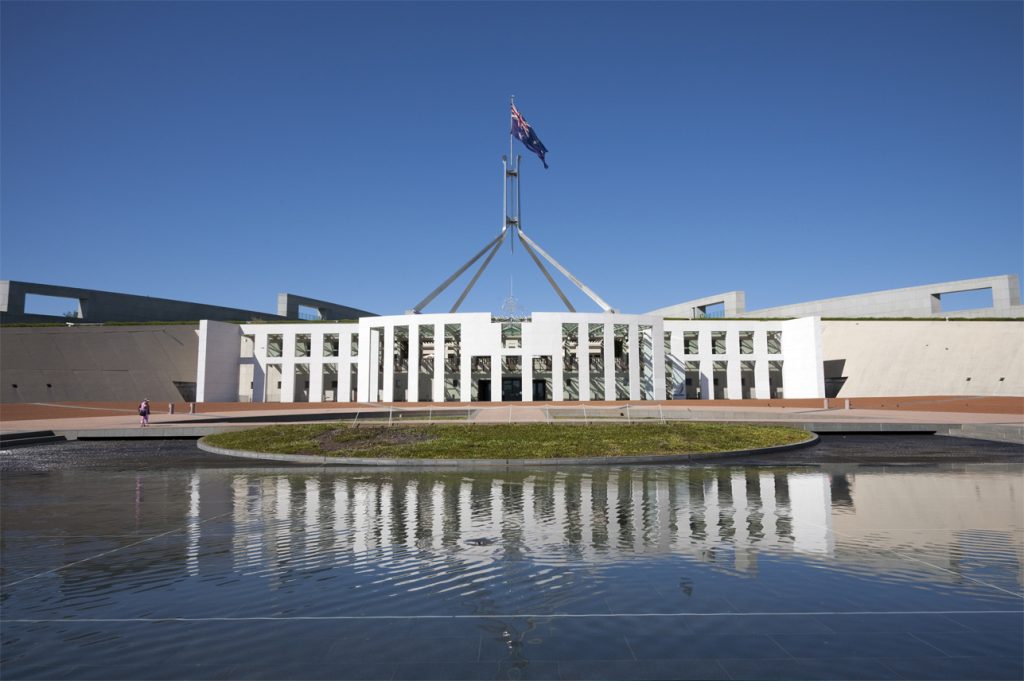
By Stephen Cauchi
18 February 2022
FAITH groups have offered a mixed response to the withdrawal of the Liberal Party’s Religious Discrimination Bill, some welcoming the move, others reiterating their belief that Australia’s laws protecting expression of religious belief are lacking.
Archbishop Philip Freier labelled the federal government’s failed attempt to pass religious discrimination laws an “accelerating train wreck” in a February opinion piece in The Age.
But the Australian Christian Lobby said that Australia still badly needed religious discrimination laws, and such laws would be passed by whoever won this year’s federal election.
Read more: ‘Gross overreach’ – faith communities protest state laws
The religious discrimination bill passed the lower house after Labor, independent Rebekah Sharkie, and five Liberals – Dave Sharma, Katy Allen, Trent Zimmerman, Fiona Martin and Bridget Archer – voted for an amendment to the bill. However, the government decided to shelve the bill in the upper house.
The bill has caused considerable public debate over its potential to allow religious schools to discriminate against LGBTIQ+ students.
Australian Christian Lobby spokesperson Wendy Francis said that the government was right not to pass the amended legislation in the upper house. She said the amendments proposed by the six MPs – the repeal of section 38(3) of the Sex Discrimination Act – would have left religious schools in potentially a worse position than they are now.
This section of the act states that it is lawful for a person to discriminate against another person on the grounds of a person’s sex, sexual orientation, gender identity, marital or relationship status, or pregnancy, in connection with employment as a member of staff of an educational institution, if it meets two criteria. That the discrimination must be conducted in accordance with the doctrines or teachings of a particular religion, and it must be done in good faith to avoid injury to the religious susceptibilities of adherents to that religion.
Ms Francis said Australia had anti-discrimination laws against gender, sex and age, and needed such laws for religion.
She said for Christian schools the main benefit of such legislation would be allowing them to employ people who kept to their ethos, in the same way a political party would be able to employ staff who kept to a particular ideology.
Ms Francis said the Catholic Church and Christian Schools Australia were trying to work with the government to get the bill passed before the next election, but the chance of that happening was low.
But she said the bill would pass in some form after the election, as both major parties had committed to bringing in religious discrimination legislation.
Ms Francis said the issues regarding transgender students were complex, also raising problems for single-sex schools.
She said it should be sent to the experts at the Australian Law Reform Commission, so they could address competing rights issues.
PhD candidate researching the intersection of religious freedom and LGBTQI+ discrimination for employees of religious bodies the Reverend Angus McLeay said the legislation would have addressed gaps in the coverage of discrimination in federal law, particularly problems in NSW and South Australia.
But Mr McLeay said there were mixed views about the seriousness of religious discrimination, as the Ruddock review found there was not strong or clear evidence of serious discrimination.
He said Muslim, Jewish and Sikh religious groups were particularly prone to discrimination.
Mr McLeay said the major loss for religious schools was the lack of the clarity the legislation would have provided.
He said religious schools were already able to hire in accordance with their ethos, under general employment law.
Writing in The Age in February, Dr Freier there were no winners from the accelerating train wreck of the federal government’s attempt to pass a religious discrimination bill.
He said that Australia did not need the legislation because many of the recommendations of the Ruddock committee – appointed by the government in 2017 to consider the issue – could be achieved by amending existing anti-discrimination law.
Dr Freier suggested a charter or a bill of rights was a possible way forward on the issue, citing New Zealand’s Bill of Rights dating from 1990 as a good example.
“Because the debate was hijacked by the religious schools issue, Christians were construed as people with a burning desire to discriminate. I emphasise that very few mainstream Christian schools want to discriminate against students on any grounds,” he said.
“My conversations with Anglican principals in Melbourne make me confident that they want gay or transgender students to flourish as much as any other student.”






